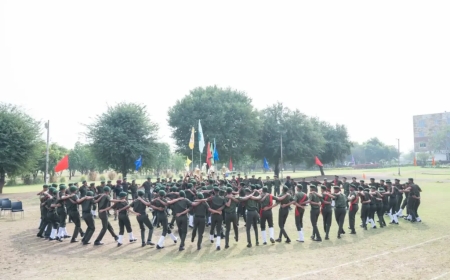Chai Ho Jai: A Cupful of Culture, Connection, and Calm
“Chai Ho Jai” is more than just a casual invitation for tea it’s a cultural expression of warmth, connection, and taking a mindful pause. Rooted in South Asian tradition, this simple phrase opens the door to conversations, comfort, and community. Whether shared with friends on a rainy day or offered as a silent gesture of care, “Chai Ho Jai” captures the heart of togetherness one cup at a time.

Theres something deeply comforting about the phrase Chai Ho Jai. Its not formal, not urgent, not dramatic. It simply shows uplike a warm hug at the right moment. Whether its spoken during a rainy afternoon, whispered during a quiet moment between friends, or shouted across the kitchen after a long day, Chai Ho Jai always lands with softness and warmth.
But what makes these three simple words so powerful? Why does this phrase carry so much emotional weight across generations and geographies?
The answer lies in what follows after it: the tea, yesbut more importantly, the pause it creates.
The Everyday Ritual With Extraordinary Meaning
In South Asia, chai is more than a beverageits a cultural staple. Almost every household has its own special way of preparing it. Some like it kadak (strong), others prefer it meethi (sweet). Theres masala chai, adrak wali chai (ginger tea), elaichi chai (cardamom), and even plain doodh-patti. But regardless of the flavor or region, the purpose remains the same: to connect, comfort, and refresh.
When someone says Chai Ho Jai, theyre not just offering you teatheyre inviting you into a moment. It might be five minutes or fifty, but its a shared space, free of urgency, where everything else can wait.
A Break from the World
In the middle of a stressful workday, when the eyes are tired and the mind is racing, someone will inevitably call out, Chai Ho Jai? and instantly, it feels like permission to stop and breathe. The clink of cups, the gurgle of a kettle, and the rising aroma of fresh chai signals a reset. Its a moment to reconnect with yourself and those around you.
Whether its a rainy afternoon on the veranda, or a quick cup on the roadside while commuting, chai creates a bridge between moments, anchoring you in the present.
Friendship, One Sip at a Time
Chai has always been a catalyst for connection. Old friends, reunited after years, often start their conversation with Chai Ho Jai. Couples on first dates, unsure of what to say, find comfort in sipping quietly. Even family members, after a disagreement, often break the silence by offering chaia non-verbal way of saying, Lets move on.
In homes, tea is often brewed in bulknot because everyone asked for it, but because chai is assumed, expected, and always welcome. In offices, it's the lifeline of productivity. In roadside stalls (tapris or dhabas), it's the glue that brings strangers together. A shared bench, a shared cup, and suddenly you're no longer strangers.
Timeless and Borderless
Though deeply rooted in South Asian soil, Chai Ho Jai has no borders. In recent years, as chai culture has gained global attention, the phrase has become a nostalgic comfort for the diaspora. From chai cafs in Toronto to food trucks in Melbourne, the phrase now echoes wherever hearts carry the memory of home.
In a world where most conversations begin with texts and notifications, Chai Ho Jai remains a refreshing, analog invitationa slow gesture in a fast world.
The Power of Simplicity
Theres no elaborate ceremony around Chai Ho Jai. No fancy crockery is needed. No agenda must be set. Its as simple as a shared desire to pause and connect at foodvlove. And perhaps thats what makes it so powerfulit asks for nothing, but gives so much.
So the next time you feel the world speeding up, or you simply miss home, speak it into the air: Chai Ho Jai.
Let the kettle boil. Let the world slow down.
Because sometimes, everything begins with a cup of chai.































